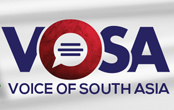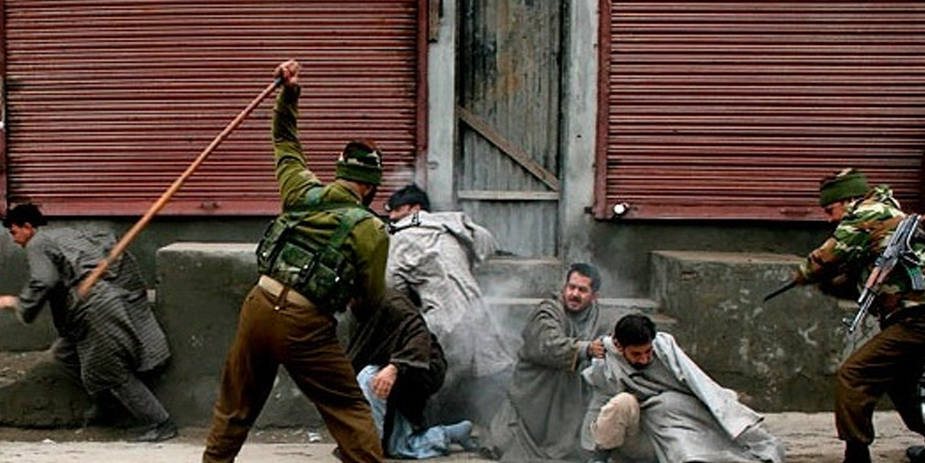Inhumane military lockdown and restrictions continue on 114th consecutive day today in occupied Kashmir following the August 5 Indian illegal decision to abrogate special status of the held valley.
Indian troops in their fresh act of state terrorism martyred two youth in Pulwama district. The troops martyred the boys during a cordon and search operation in Drabgam area of the district.
Meanwhile, Indian police have launched a crackdown and arrested dozens of youth to create an impression that they have links with traders and public transporters who observe civil disobedience at their behest.
However, a senior police officer admitted that traders and public transporters in Kashmir, especially in Srinagar close their businesses and suspend vehicular movement in protest.
Besieged residents of Kashmir valley are still facing severe hardships due to shortage of essential commodities due to continued blockade and fast approaching winter.
According to a report, Indian brutalities in held Kashmir continue for the fourth consecutive month. More than 8 million Kashmiris are facing media blackout and Indian miseries.
Almost 894 children have been martyred in occupied Kashmir so far, while more than 177 thousand have been orphaned.
Posters appeared in several areas of Srinagar and adjoining areas asking people to continue civil disobedience against India’s illegal moves in Kashmir.
People have been asked to belie India’s claim of normalcy through keeping their shutters down and vehicles off the roads as a mark of silent protest against revocation of Kashmir’s special status.
Now, Kashmiris have been plunged into another crisis affecting their psychiatric health.
Filmmaking student Faiq Faizan left his native Kashmir with his parents when he was just four years old and the Indian capital of New Delhi has been home ever since.
The 25-year-old was spared the worst excesses of the conflict in his home region and was therefore relatively detached from the experience of Kashmiris who have witnessed decades of armed conflict.
That mindset shifted with the revocation of the region’s constitutionally-guaranteed nominal autonomy in August, known as Article 370, by the hard-right Hindu nationalist Bharatiya Janata Party (BJP) government.
He said for the first time he felt alienated and humiliated in his adopted home of Delhi.
The mental strain of the anti-Kashmiri sentiment and lack of empathy for natives of the region that came coupled with the repealing of Article 50 forced him to act, not just to help himself but others too.
Faizan and his friends organised mental health workshops for Kashmiris in Delhi suffering from anxiety, repression of mental health issues, trauma, and depression.
Nevertheless, Faizan still believes that the issue of how Kashmiris deal with decades of war and political tumult has not properly been addressed.
Since 1987, Kashmiris have experienced direct armed conflict but also abuses by Indian forces, in what is one of the most densely militarised regions in the world. Human rights groups have long recorded such violations.
They include acts of individual violence, such as invasive body frisking, beatings, and sexual, as well as physical abuse. Examples of collective violence include home searches, curfews, and the brutal treatment of posters through the use of tear gas and buckshot pellets, which have resulted in a spate of deaths and eye injuries in the region.



